National Herb Week, established by the International Herb Association, is the week prior to Mother’s Day. Celebrate National Herb Week by adding herbs to your garden.
Growing herbs benefits you and supports your garden’s pollinators. Herbs can be used for many reasons: culinary, teas, and beverages, medicinal, aromatherapy, dyes, ornamental, crafts, cosmetics, and toiletries. According to the Herb Society of America, herbs are “plants (trees, shrubs, vines, perennials, biennials, or annuals) valued historically, presently, or potentially” for their use to humans. Often these uses overlap and many people do not realize that herbs are beneficial to beneficial insects and pollinators as well.
Herbs support pollinators, especially the native bees that are facing decline, and some species of butterflies including the monarch (yes milkweed is an herb). Bees and butterflies are attracted to herbs typically grown for their flowers such as borage, calendula, anise hyssop, lavender, monarda, and violets. Caterpillars, the larval stage of butterflies, love to eat the foliage of parsley, dill, and fennel. Hummingbirds, a type of pollinating bird, enjoy the nectar of monarda, anise hyssop, pineapple sage, and nasturtiums. Herbs that are typically grown for foliage — basil, cilantro, oregano, lemon balm, lovage and mint – will attract bees and butterflies if you let them flower. Or plant some for your pesto and salsa and some for the pollinators, letting the plants flower on purpose.
Pollinators love herbs because most herbs are straight species, their flower and leaf structures have not changed over time. Most herbs are also open pollinated, rich in nectar and pollen. From an ecological perspective, herbs increase biodiversity in the garden which increases resilience to pests, diseases, and climate change.
Celebrate National Herb Week by exploring herbs’ ability to add to your and your garden’s health.
Please feel free to share or adapt this article in your newsletter or other customer communications with credit to NICH/consumerhort.org.
Peggy Riccio is a horticulturist and garden communicator who initiated the Culinary Herbs and Spices Facebook group. Her website, pegplant.com, is an online resource for gardeners in the DC metro area.
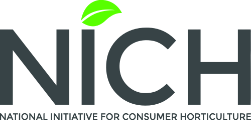
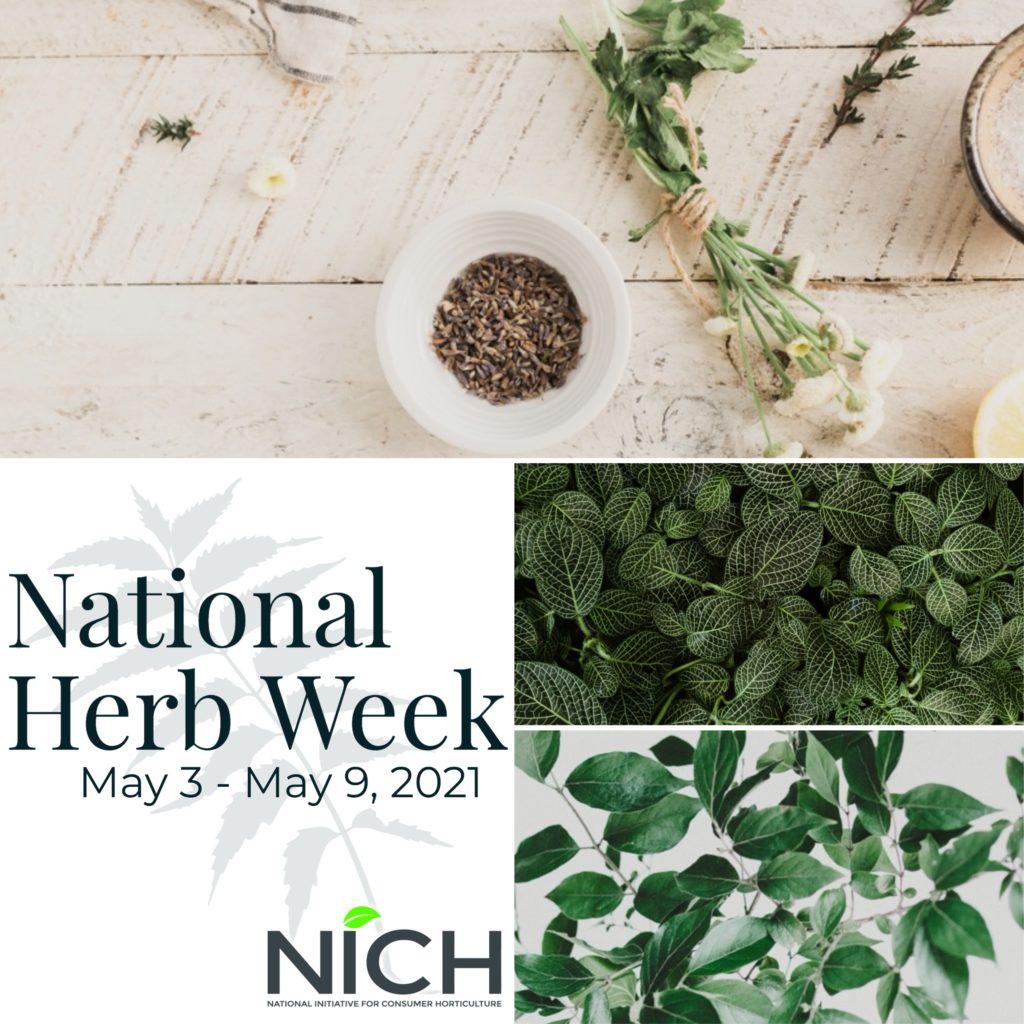
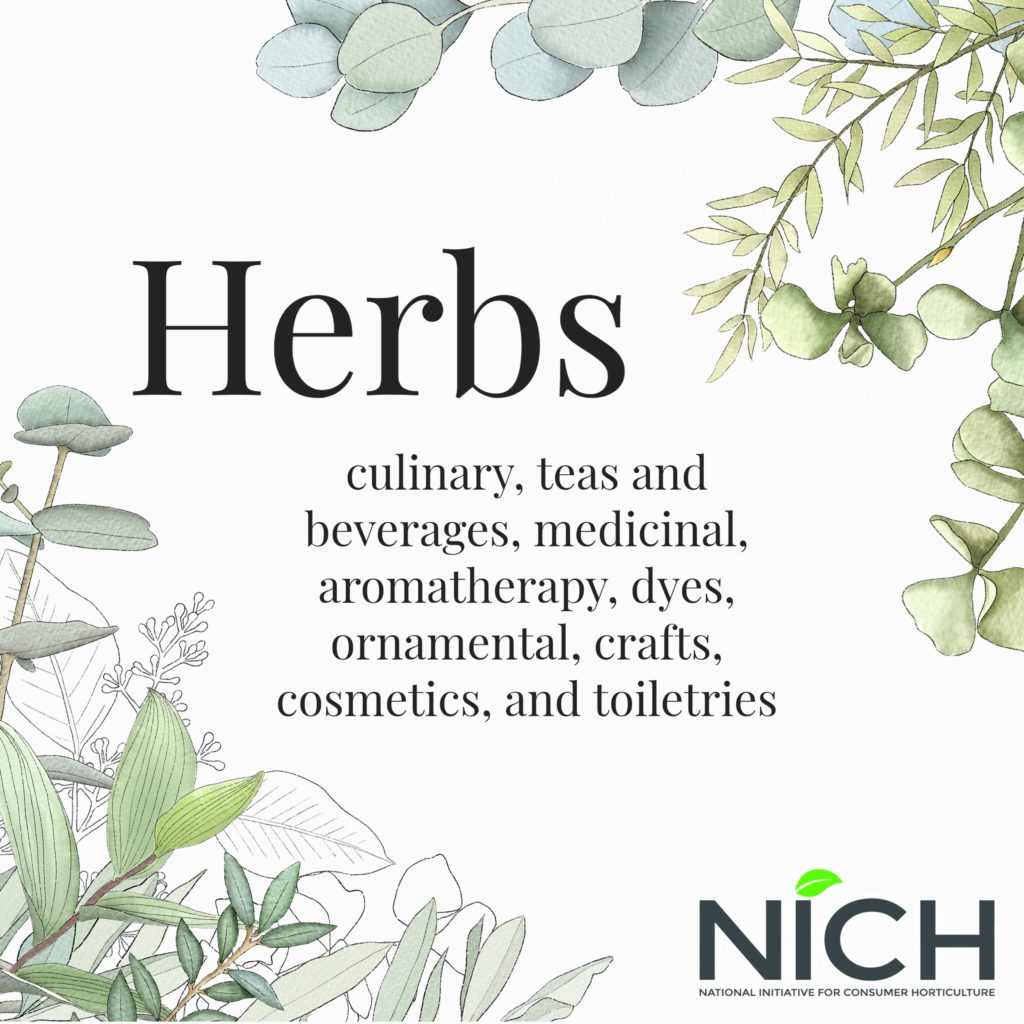
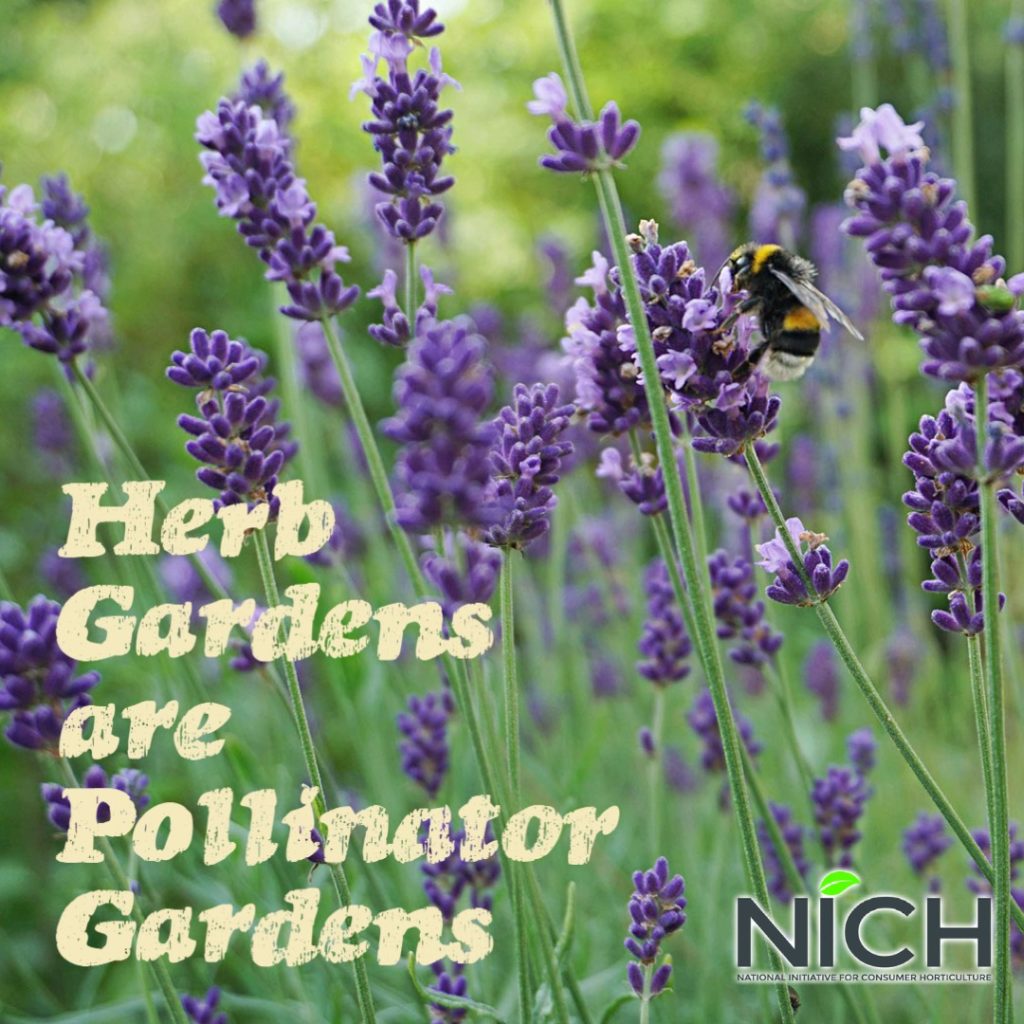
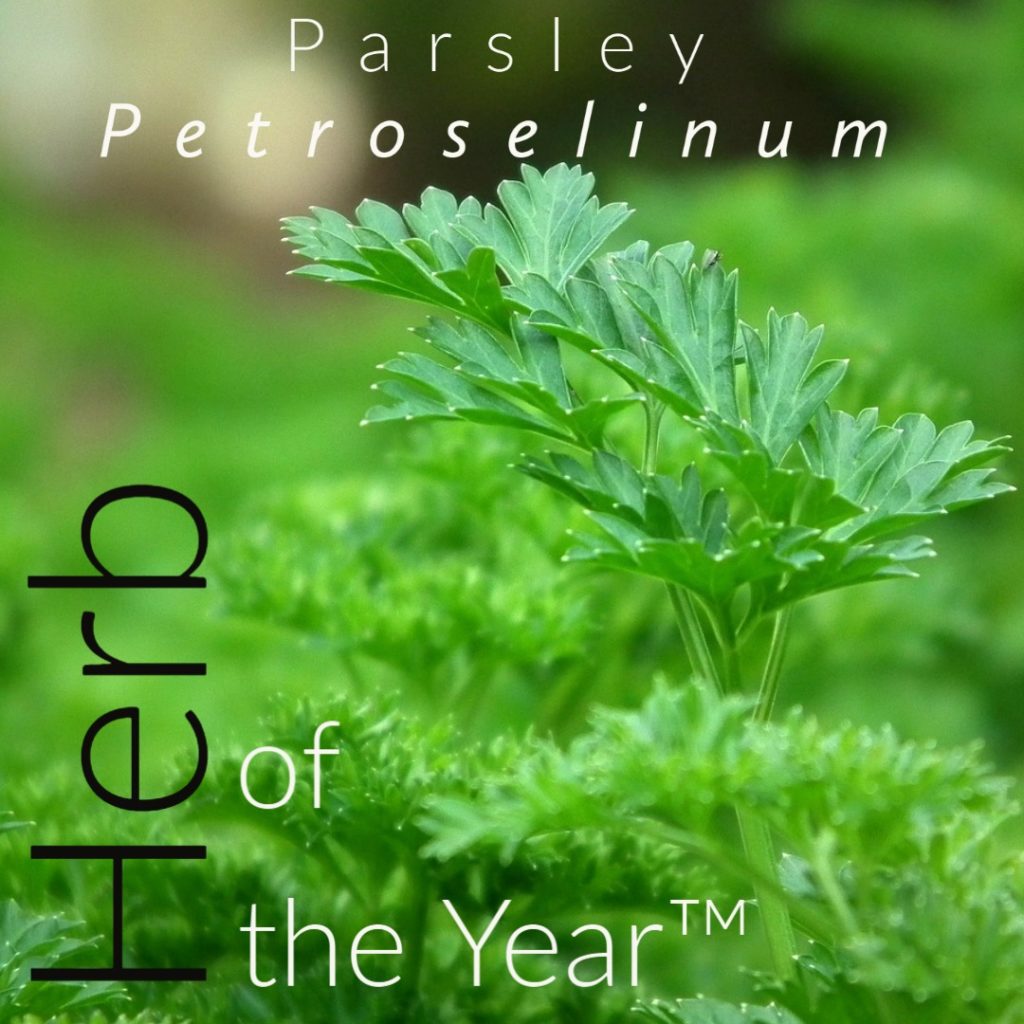
Leave a Reply